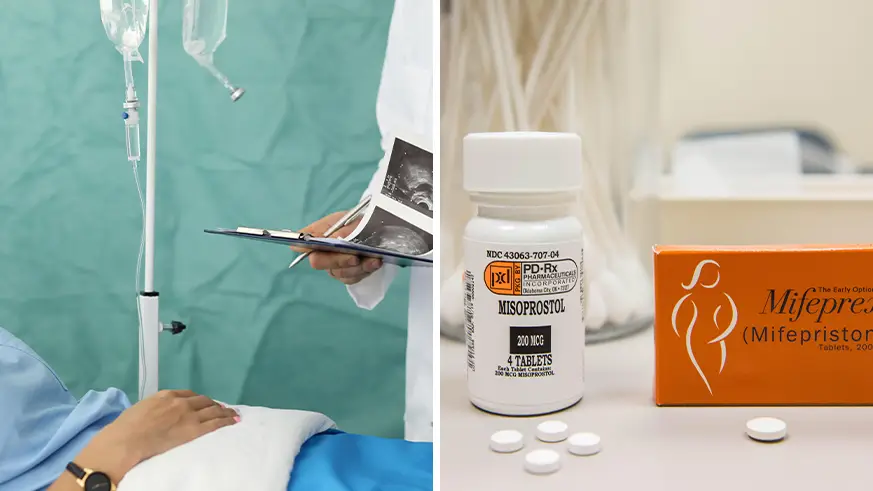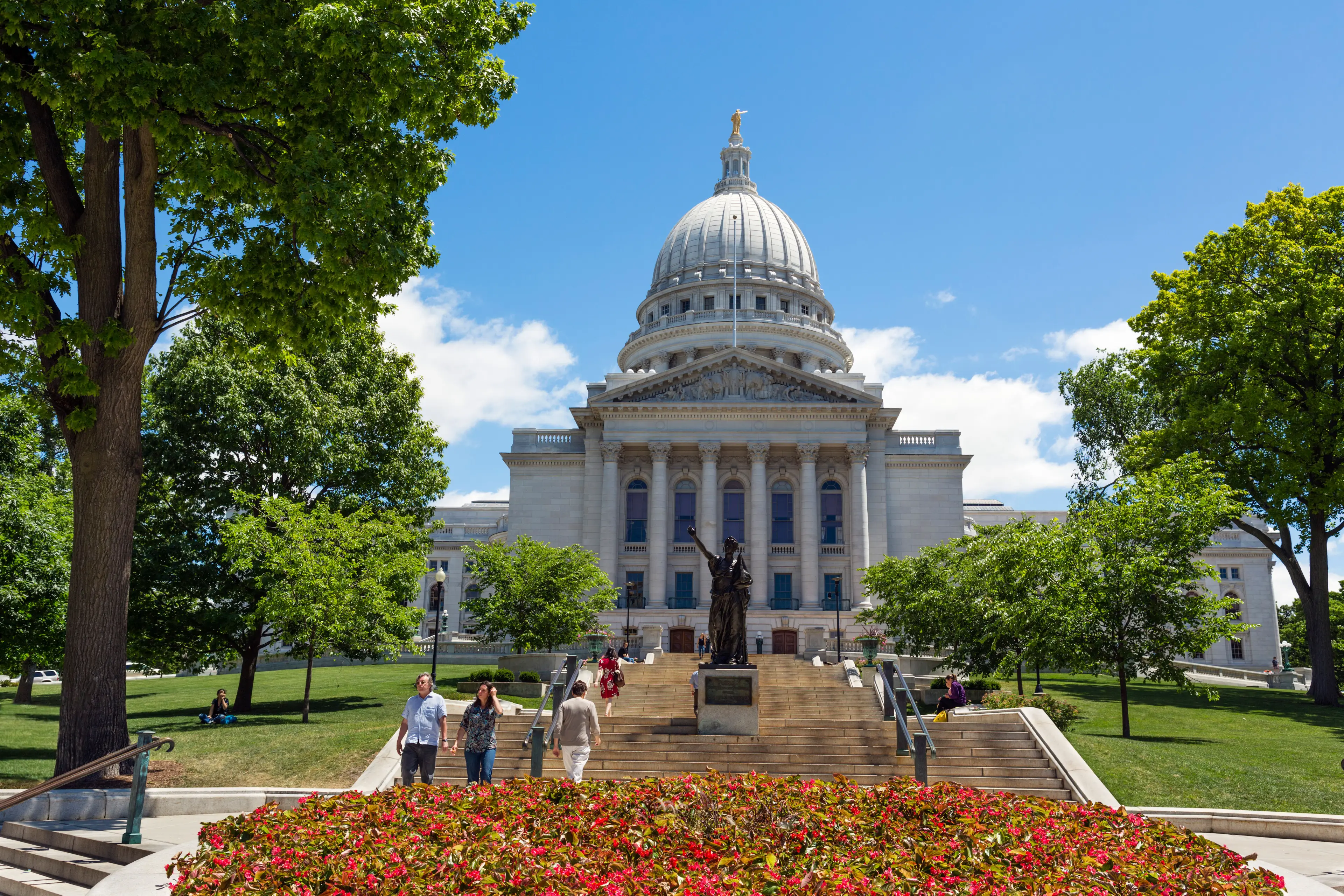
A woman who suffered an ‘incomplete miscarriage’ in Wisconsin, USA, was denied medical assistance and left to bleed due to the state’s law on abortion.
The unidentified woman bled for 10 days after staff refused to remove the pregnancy tissue from her uterus for fear that they would be infringing on Wisconsin’s 1849 ban on abortions, which is back into effect now that the Supreme Court has overturned Roe v Wade.
The law states that performing an abortion is a criminal offence, with notable exception. Abortions are only permitted in Wisconsin when deemed ‘necessary, or is advised by two other physicians as necessary, to save the life of the mother'.
The law meant that the woman was unable to seek medical management or a D&C (a surgical procedure called dilation and curettage) for her ‘incomplete miscarriage’, where bleeding begins and the cervix dilates, but pregnancy tissue still remains in the uterus.
Advert

Instead, the woman was advised to do ‘watchful waiting’ to see if the body passes the pregnancy matter on its own - leaving her to bleed for over a week.
However, expectant management has an increased risk of excessive bleeding, which also increases the need for a blood transfusion.
In the end, Carley Zeal, a gynaecologist at Mercy Health Cancer Center in south Wisconsin, administered the woman medication to expel the foetal tissue.
The medication, misoprostol, is the same medication used in medical abortions, leaving doctors unsure whether to prescribe it post-Roe v Wade overturning.

Carly recently told the Washington Post: “It really delayed her care.
“I saw her a week and a half later with an ongoing miscarriage and bleeding, increasing the risk of severe bleeding as well as infections.”
On June 24, the US Supreme Court eliminated a woman’s right to an abortion.
Millions of people in the US have lost the legal right to obtain an abortion after the Supreme Court overturned the milestone 1973 legislation that guaranteed women the right to abort up until foetal viability.

The judgement is said to now be transforming abortion rights in the USA, with individual states now being able to decide whether to ban the procedure.
In May, a draft opinion was leaked on Roe v Wade that suggested that the Supreme Court would vote in favour of overturning the legislation.
Abortion access was expected to be reduced for around 36 million women of reproductive age, according to research from Planned Parenthood, a healthcare clinic that carries out medical terminations.
For abortion support in the US, visit Planned Parenthood here. For abortion support in the UK and Northern Ireland, visit the NHS website here. For abortion support in Ireland, which has been lawful since March 2020, visit HSE here.
